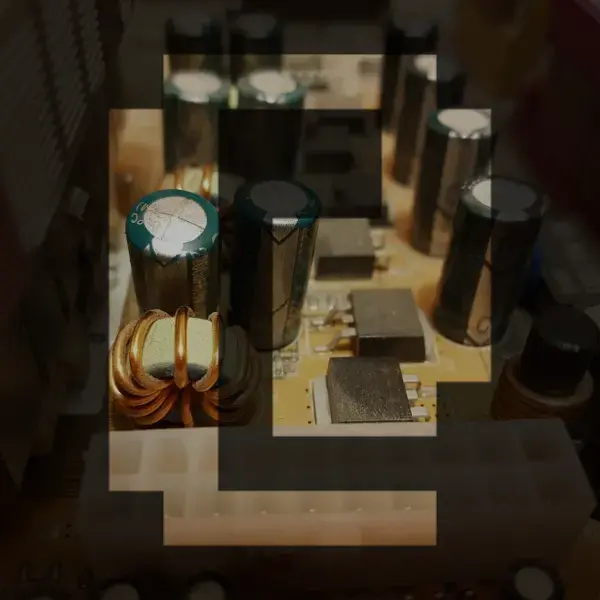We already had this, it’s called Intel Optane Persistent Memory and Intel killed it off last year: https://www.intel.com/content/www/us/en/products/docs/memory-storage/optane-persistent-memory/overview.html
The memory speed was slightly slower than DDR4 but the benefits didn’t seem to outweigh the downsides. I think it probably kicked a lot of ass for specific use cases (eg. in-memory database that needs persistence), but the market was too small. Plus, SSDs are getting so ridiculously fast that it would put pressure on a product like this too.
Of course, this is still a new and emerging technology and it’s too early to say when we might see it in our devices, or how much it will cost.
Looks really cool, buy yeah my guess is i will cost to much to be viable for most things.
Maybe it could be good for moving and storing servers?
it’ll hit business servers first… speed and power draw = profits. Even if they cost 1000x more than SSDs, the power savings and speed alone could pay for itself in a datacenter.
Can’t wait for my ram to last 1000 years just for the hinge on my laptop screen to last 2 (guess what just broke on my laptop after 2 years)
guess what just broke on my laptop after 2 years
I’m guessing it was the floppy drive?
The whole thing is floppy now.
That’s what she said
no, it was the power LED
Now… Let’s see what 1000 years of cosmic radiation does to the data.
Perfect for when civilization collapses and we have to do some wasteland 2 shenannigans to get the lost knowledge of the past back by hoarding laptops.
And then you find out they were mainly working from the cloud.
If everything stored solely in the cloud was suddenly lost forever, that would probably be a net boon for humanity.
lost
knowledgememes
This sounds neat, but it also seems like it does not have much practical advantage over hibernation except faster wake.
The power draw and nonvolatility could mean it can replace SSDs and hard drives entirely. Just store everything in RAM.
“Right. Now… what was I working on, again?”
So does it allow this by granting immortality or by necromancy?
By uploading your consciousness to the cloud. Basic plans start at $4.99/mo
This sounds like a giant security risk?
Sounds more like a very small security risk, to me. For most people if someone steals their laptop it doesn’t really matter what kind of RAM is in it.
If you’re in some kind of high-security role then use a laptop with volatile RAM instead. Non-volatile will probably be more expensive than the old stuff for quite a while so it’s not going anywhere.
Maybe, it depends how it works.
Memory is often unencrypted and/or contains encryption keys. Many programs rely on the assumption that it’s cleared on powerdown for security.
Depending on how this memory enters the long term state it seems that a lot of legacy software might become vulnerable to a really simple attack.
Pulling the plug might no longer be something that forces someone to engage in rubber hose analysis.
Many programs rely on the assumption that it’s cleared on powerdown for security.
In a world with ULTRARAM those programs will need to be rewritten to operate under new assumptions.
Sure of course of course but umm have you seen software?
There are still windows xp computers on the internet.
It’s not insurmountable, and of course I have no idea if/how this will roll out.
Just it seems to mess with a rather deep assumption we have about how computers operate when we develop software and threat models.
The better example is that there are still programs compiled in Win 95 running here and there if I’m correct.
Sure, but anyone who’s still running WindowsXP on their laptop wants to suffer.
As always, the security-minded will be able to secure their devices and everyone else will not care until it bites them. ULTRARAM isn’t revolutionary in that regard.
Depends if the RAM is encrypted, and how secure the TPM is.
I admit to being out of the game for a while but how common is RAM encryption?
wouldn’t the overhead violate half the point of RAM?
There’s always a tradeoff in computing between security v/s performance/overhead, so the value of it depends on your threat model, and the attack vectors you’re expecting.
Anyways, RAM encryption is generally “available” in various forms, depending on the mobo, CPU, software used etc, but it’s not commonly enabled/used. Most AMD boards (at least, mid-range and above should) have an option in the BIOS to enable Secure Memory Encryption (SME). This allows the OS to selectively encrypt memory pages, making use of a hardware AES engine that sits outside of the CPU.
There’s also Transparent SME (TSME), which encrypts the entire memory and works completely independent of the OS and software. Usually only high-end/workstation boards have this, and it also requires a Ryzen PRO CPU. TSME also has a much lower overhead, I recall reading somewhere it’s something like only 5%.
I believe Intel also has something similar, but I never looked into it.
AMD have a whitepaper available with an overview on how this stuff works, if you’re interested: https://www.amd.com/system/files/TechDocs/memory-encryption-white-paper.pdf
So basically just a quicker SSD for systemctl hibernate?
Yeah, sounds like a best of both worlds situation where you wouldn’t have to decide whether to suspend or hibernate anymore
I love the security implications of this. /s
?
So you know those encrypted files you might have? You know how your computer is able to display them? Yeah, you enter the passcode and then it and any information derived from it is (probably, barring special hardware) stored in RAM to in order do that. This isn’t usually an issue because turning your computer off will quickly erase the RAM and it can no longer be used to open that file.
I don’t think a battery, soldering joints or displays would last that long…
I have to regretfully say I would have had an apocalypse bingo but I didn’t have “Laptop of Dorian Gray” on my scorecard
But how do I download more?
Our Families Windows XP Laptop had a RAM to storage feature that essentially did the same. I think Windows killed it off but if I had to guess it’s just not a good idea to avoid rebooting properly so I really can’t see the use for this.
You mean hibernate?
I have absolutely no clue, I just remember what it did and that I tried it a few too many times in a row back then.
It still exists, and it works better now.
Interesting, I haven’t used Windows in ages.
















